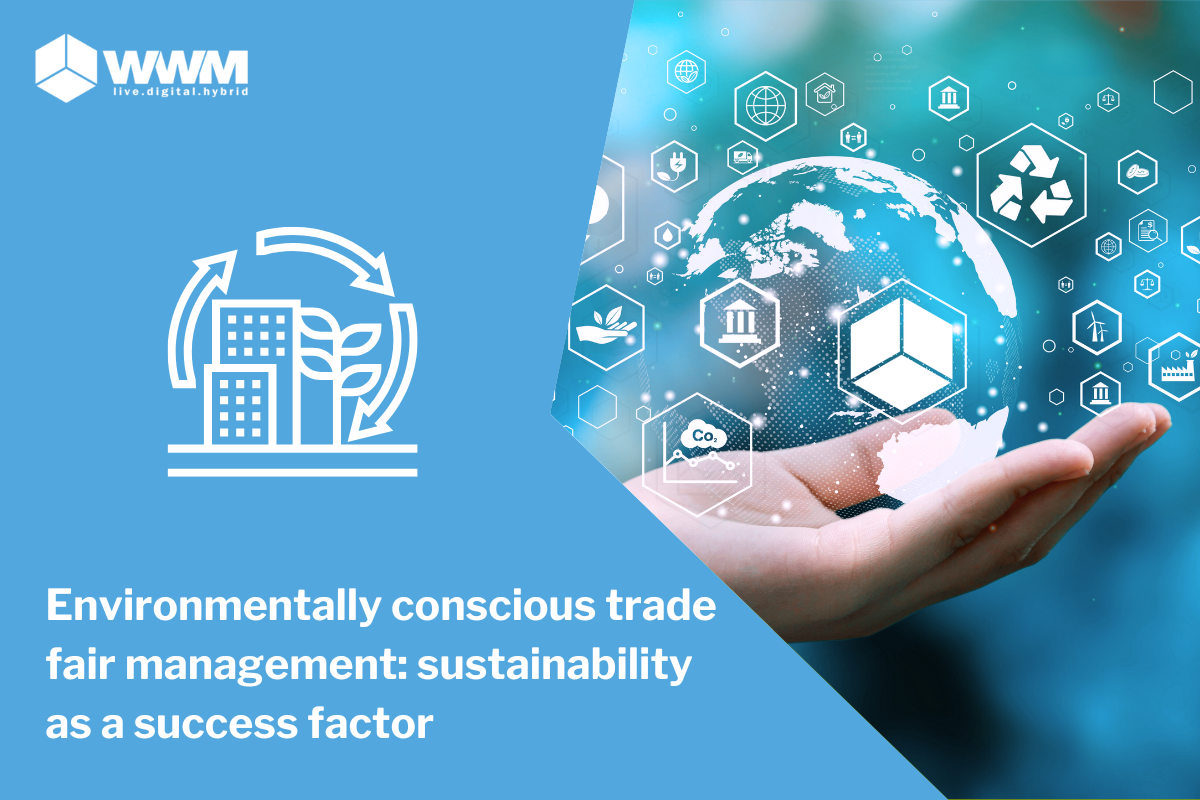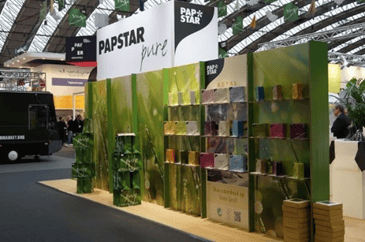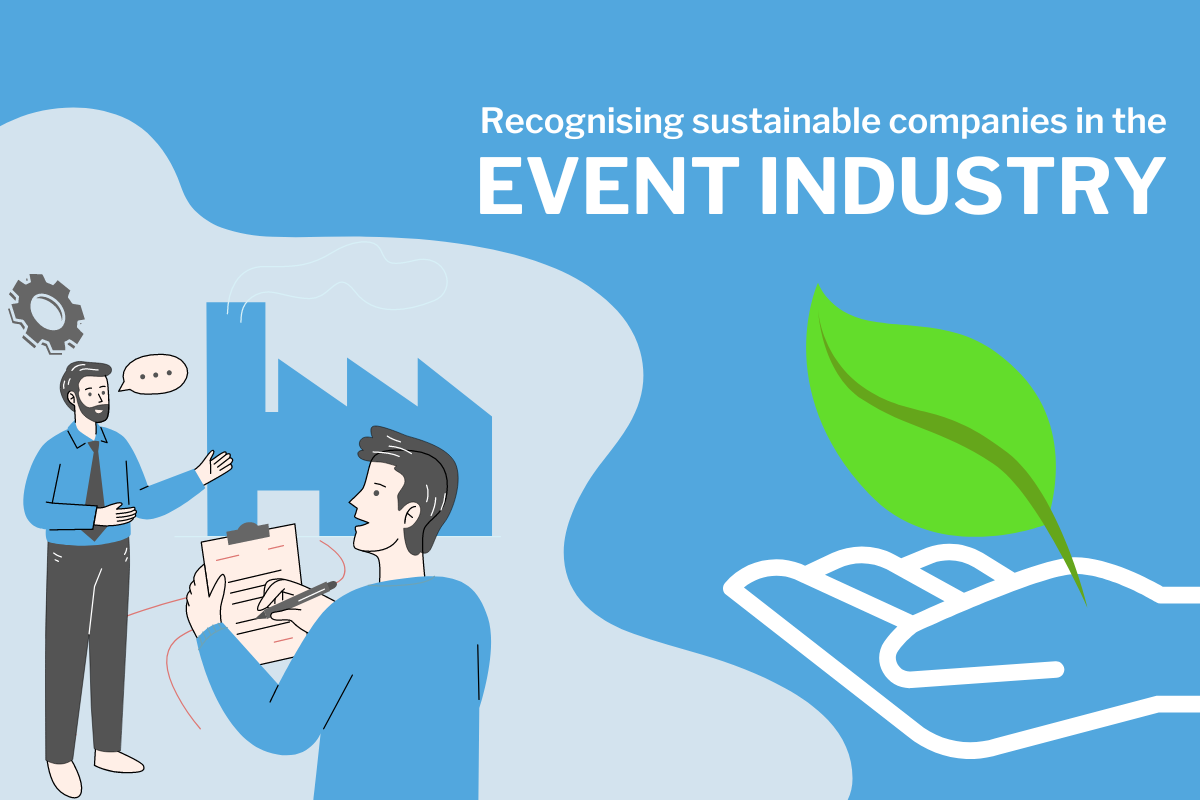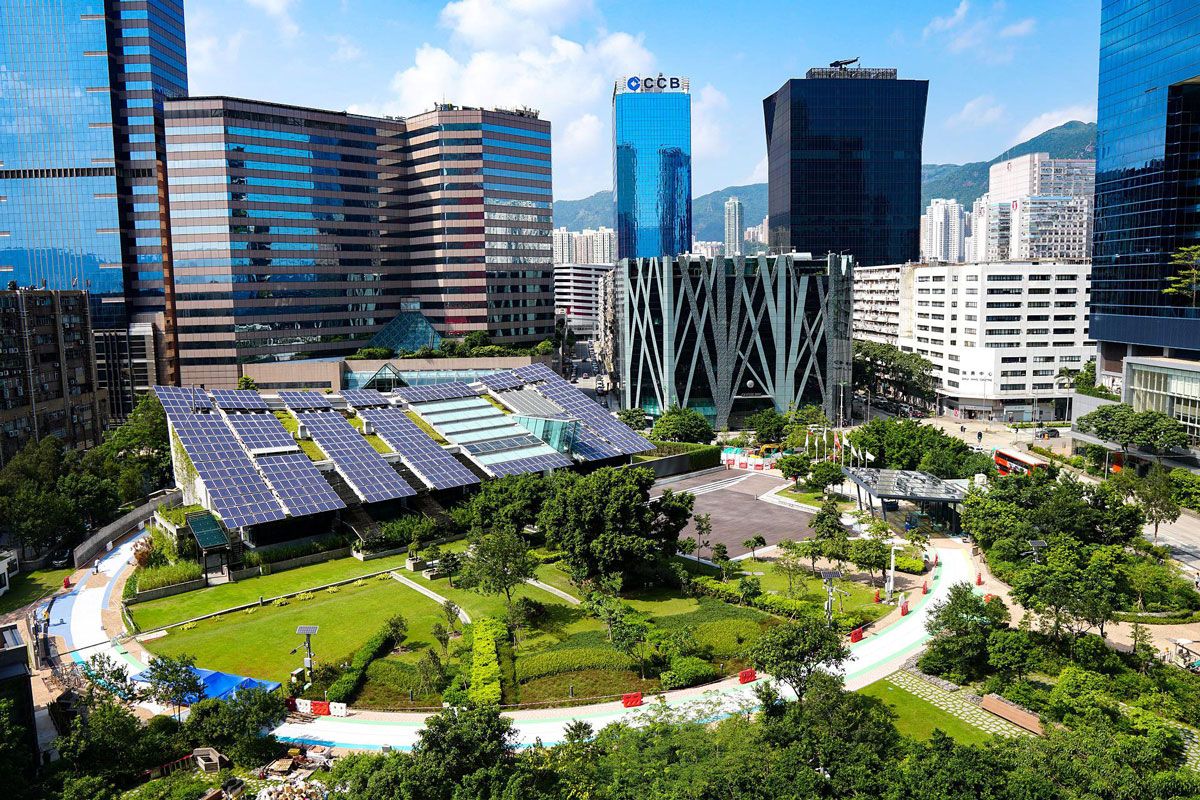Recognising sustainable companies in the event industry
In a world characterised by constant change and progress, the topic of sustainability is becoming increasingly important and is therefore now a top...
5 min read
 Maaike Rotthier
:
Saturday, 23. March 2024
Maaike Rotthier
:
Saturday, 23. March 2024

In a world where sustainability is becoming increasingly important, companies are faced with the challenge of integrating these principles into all areas of business. Exhibition stand construction is no exception and is an important area where sustainability is becoming a key success factor. As a company in the exhibition stand construction and full-service industry, we understand the importance of environmentally conscious exhibition management that not only aims to provide customized solutions for our clients, but also to have a positive impact on the environment. This introduction provides a comprehensive insight into the relevance of sustainability in the exhibition industry and why sustainable practices should be considered a fundamental pillar of our corporate values. In the following, we will explore the various aspects of environmentally conscious exhibition management and discuss in detail the importance of sustainability as a key success factor for companies in the exhibition industry.
Efficient use of energy and resources is crucial for reducing CO2 emissions at trade fairs. Companies can use energy-efficient lighting systems such as LED lamps, select equipment with low energy consumption and optimally air-condition the stand area to minimize energy consumption. The use of digital technologies for presentations and communication can not only save paper, but also eliminate the need to transport heavy printed materials, which in turn reduces CO2 emissions. These measures are part of a comprehensive strategy for environmental protection and help to reduce the ecological footprint.
Companies are increasingly focusing on the promotion of environmentally friendly measures and social responsibility as important corporate values. By implementing various measures, companies are actively helping to reduce their environmental footprint. These include the use of reusable materials and the minimization of disposable products, which not only signals environmental protection but also saves resources. As part of their corporate social responsibility, companies are also involved in social projects to promote society and the environment.
The use of renewable energies such as solar energy through photovoltaic systems is a further step towards reducing CO2 emissions and minimising environmental pollution. Companies can also help to promote sustainable mobility by providing charging stations for electric vehicles. These measures are part of a comprehensive strategy for environmental protection and social responsibility.
Find out more about our CO2 reduction and corporate social responsibility initiatives
An important strategy for reducing the CO2 footprint at trade fairs and events is the increased use of renewable energies. In particular, solar energy through photovoltaic systems offers companies the opportunity to meet their energy needs from sustainable sources and thus significantly reduce their environmental impact. The transition to renewable energies such as solar power is not only environmentally friendly, but can also bring long-term economic benefits by reducing dependence on fossil fuels. Companies should therefore consider the integration of renewable energy into their sustainability strategies for events and exhibitions as an important step towards environmentally conscious business management. These measures are not only a commitment to environmental responsibility, but also a way to make their sustainability efforts visible and make a positive contribution to climate protection.

As a leading exhibition stand construction and full-service company, we attach great importance to the use of regenerative and renewable energy sources. In particular, the integration of photovoltaic systems enables us to cover 100% of our electricity requirements from sustainable energy sources. This decision is in line with our corporate values, in which health and environmental awareness play a central role. By purchasing electricity from renewable sources and feeding it into the European distribution grid, we are not only helping to protect the environment, but also significantly reducing our CO2 emissions. At our sites in Monschau and Alsdorf, we have achieved annual CO2 savings of 9.4 tonnes thanks to our photovoltaic systems. These measures are an important step towards sustainable and environmentally friendly company management.
An important strategy for reducing the carbon footprint at trade fairs and events is the increased use of renewable energies. In particular, solar energy through photovoltaic systems offers companies the opportunity to meet their energy needs from sustainable sources and thus significantly reduce their environmental impact. The transition to renewable energies such as solar power is not only environmentally friendly, but can also bring long-term economic benefits by reducing dependence on fossil fuels. Companies should therefore consider the integration of renewable energy into their sustainability strategies for events and exhibitions as an important step towards environmentally conscious business management. These measures are not only a commitment to environmental responsibility, but also a way to make their sustainability efforts visible and make a positive contribution to climate protection.
Our sustainable trade fair strategy also includes the integration of environmentally friendly technologies. At WWM, we focus on innovative solutions that not only increase the attractiveness of our trade fair stands, but also promote energy efficiency. The use of energy-saving lighting systems, intelligent climate control systems and resource-saving digital presentation technologies are all part of our commitment to technological sustainability.
How do companies demonstrate their commitment and how do customers recognise it?
In an ever-changing world, sustainability is becoming increasingly important in the event industry. Companies are faced with the challenge of finding and implementing sustainable solutions to protect the environment. This requires a rethink in the use of resources and the promotion of environmentally conscious behaviour both inside and outside the company.
But what exactly does sustainability mean for companies?
How do companies demonstrate their commitment to sustainability?
Summary:
Further information on this topic can be found in our article: Recognising sustainable companies in the event industry.


Our standards at RocketExpo go far beyond the ordinary. We consistently focus on visionary and customised design concepts for our customers' exhibition stands. Recycled wood, reusable graphic materials, cardboard and biodegradable elements are not just materials for us, but an expression of our commitment to an environmentally friendly trade fair presence, as can be seen in the illustrations of our customised PAPSTAR trade fair stand.
The flexibility of our ExpoCloud team with modular stand structures allows us to efficiently reuse materials at trade fairs and minimise our ecological footprint.
Promoting environmentally friendly measures and social commitment have become important corporate values for companies. By actively supporting environmental projects and social initiatives, they are helping to shape a sustainable future and make a positive contribution to society. Education and awareness-raising play a decisive role at trade fairs. Companies can promote awareness of environmentally friendly action through informative elements, interactive experiences and partnerships with NGOs or non-profit organisations. These measures serve as environmental education and inspire responsible behaviour in terms of environmental protection and social commitment. A holistic approach is crucial for sustainable and socially responsible development in the business world and beyond.
Continuous evaluation and optimisation of sustainability strategies are crucial to achieving long-term positive impact. Participation in industry initiatives and certification programmes for sustainable events allows companies to measure their performance and continuously work on improvements. Sustainability is not a static goal, but a dynamic journey that requires constant adjustments. For this reason, regular evaluations and feedback mechanisms are used to continuously optimise sustainability initiatives. This enables companies to respond flexibly to changing environmental requirements and technological developments and to continuously strengthen their commitment to a more sustainable future.
-png.png?width=800&height=533&name=Titelbild%20(1)-png.png)
Environmentally conscious trade fair management requires a holistic approach, from planning to follow-up. Through sustainable stand design, efficient use of resources, integration of environmentally friendly technologies and a general commitment to sustainability, companies can not only improve their environmental footprint, but also strengthen their market position and build long-term relationships with customers and partners. This not only contributes to the success of individual trade fairs, but also to the development of a sustainable event industry as a whole. As a leading exhibition stand construction and full-service company, we pride ourselves on not only creating customised exhibition stands for our clients, but also making a positive impact on the environment. We see sustainable practices not only as an obligation, but as an essential pillar of our corporate value.

In a world characterised by constant change and progress, the topic of sustainability is becoming increasingly important and is therefore now a top...

The costs of environmental change should not be underestimated. Regulations often force companies to invest in new technologies, services and...

Sustainable solutions are becoming increasingly important in modern trade fair construction. Companies, exhibitors and organizers are increasingly...